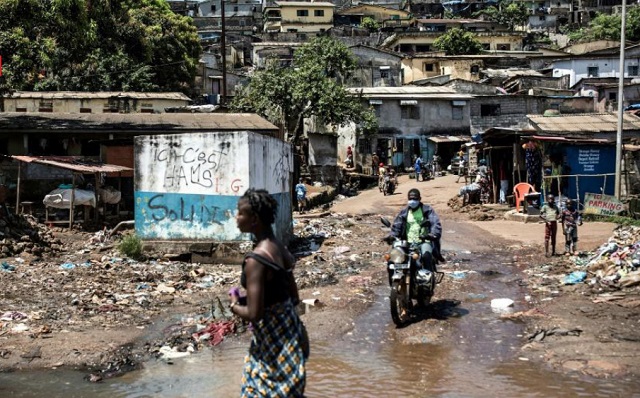
There has been a fight for its iron ore mines
ANALYSIS | BY AGENCIES | Guinea’s special forces on Sunday Sept.05 ousted the West African country’s president, Alpha Condé, raising the political and operational risk for its minerals, which include bauxite, diamonds, iron ore and gold.
Mining accounts for about 35% of GDP in Guinea and while the West African country has large reserves, the development of many of its minerals has been hobbled by a lack of infrastructure, legal spats and alleged corruption.
Guinea also has mineral resources including cement, salt, graphite, limestone, manganese, nickel and uranium.
A billionaire French-Israeli diamond magnate, Beny Steinmetz, in January appeared in court in Switzerland to face trial over alleged corruption linked to a major mining deal in Guinea.
He has always denied his company, BSGR, paid multi-million dollar bribes to obtain iron ore mining exploration permits in southern Guinea in 2008.
Steinmetz, 64, was previously sentenced in absentia to five years in prison by a court in Romania for money laundering.
Swiss prosecutors say Steinmetz paid about $10m (£7.4m) in bribes, in part through Swiss bank accounts, to gain the rights to Guinea’s iron ore deposits in the Simandou mountains.
The area is believed to contain the world’s largest untapped iron ore deposits.
Mo Ibrahim, the Sudanese telecom billionaire and anti-corruption campaigner, asked at the time: “Are the Guineans who did that deal idiots, or criminals, or both?”
According to the prosecutors, the bribes to Guinean public officials were paid with the help of Mamadie Toure, the widow of Guinea’s former president Lansana Conte. They also allege that Steinmetz forged documents linked to the deal.
When what came to be termed a “parliamentary coup” ousted Paraguayan president Fernando Lugo on June 22, 2012, an article by Open Democracy pointed out how the Canadian-based multinational mining giant Rio Tinto Alcan (RTA) was in advanced negotiations with the Paraguayan government to construct a 674,000-tonne Greenfield aluminium-smelter.
Another article in the London Mining Network news proclaimed that “Rio Tinto Alcan benefits from Paraguay coup”.
Yet another article by IndustrialALL Global Union Challenged Rio Tinto to publicly disclose its interest and involvement, if any, in the coup d’état in Paraguay and the ousting of a legitimately elected democratic government of Fernando Lugo.
“Rio Tinto, which has a legendary association with the government of Canada, has been quick off the mark to resume negotiations on behalf of Montreal-based Rio Tinto Alcan for a $4 billion aluminium plant,” the article said, “Prior to the coup, these negotiations had stalled over a disagreement over the price of energy that Rio Tinto Alcan would need to pay for the operation of the smelter.”
At the time of the coup in Guinea, there has been an ongoing fight over country’s Simandou iron ore mines. The Guinean government of Alpha Conde in 2018 ordered the Rio Tinto Group – the world’s third-largest mining company and second-largest iron-ore producer – to hand over half of the Simandou deposit to a company controlled by Israeli diamond investor Beny Steinmetz.
At the time, BSGR was suing multi-billionaire financier George Soros of the Open Society Foundations of manipulating the government of Guinea and elected officials to strip BSGR of mining contracts.
In February 2019 BSGR says it will walk away from the Simandou project as part of a settlement with the Guinean government, in which both parties agreed to drop outstanding legal action.
 The Independent Uganda: You get the Truth we Pay the Price
The Independent Uganda: You get the Truth we Pay the Price



